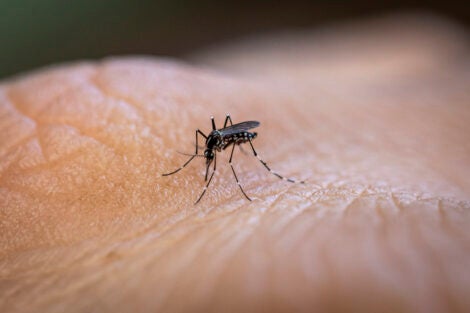March 19, 2024—To respond to a historic spike in dengue fever, Brazil has become the first country in the world to organize a public vaccination campaign against the disease—one that experts say is unlikely to halt its spread.
Marcia Castro, professor and chair of the Department of Global Health and Population at Harvard T.H. Chan School of Public Health, was among the experts quoted in a March 1 Nature article about the surge and vaccination campaign.
“The cities are growing and becoming paradise for mosquitoes,” Castro said, commenting on one driver of dengue: the rapid growth of Brazil’s cities but comparatively slow implementation of adequate sanitation infrastructure.
Other issues behind the outbreak include climate change, evolution of the mosquitoes that carry the disease, and limited natural immunity among Brazil’s population. Given these long-term factors, as well as challenges regarding vaccine availability, rollout, and adherence to the two required doses, “the vaccine is not going to resolve the problem now,” Castro said. However, she said a new, yet-to-be-approved dengue vaccine in development in São Paulo, Brazil, offers a glimmer of hope. In a large clinical trial, this vaccine demonstrated high efficacy in protecting against symptomatic dengue in a single dose.
Read the Nature article: Brazil’s record dengue surge: why a vaccine campaign is unlikely to stop it
Photo: iStock/cacio murilo de vasconcelos
